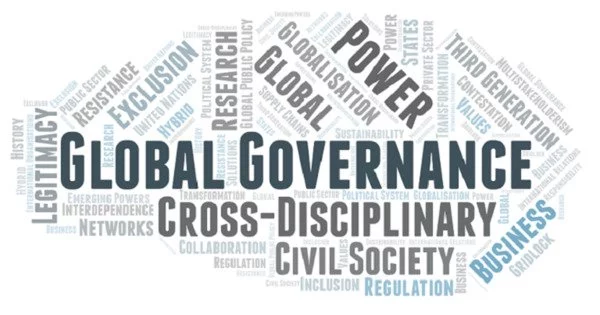Global governance refers to the collective management and coordination of international affairs and issues, including political, economic, social, and environmental concerns. It involves the participation of multiple actors, including nation-states, international organizations, civil society, and other stakeholders, in decision-making processes that impact the global community. The aim of global governance is to promote cooperation and coordination between countries to address shared global challenges and to maintain international peace and stability.
Institutions that coordinate the behavior of transnational actors, facilitate cooperation, resolve disputes, and alleviate collective action problems are referred to as global governance. Global governance is broadly defined as the creation, monitoring, and enforcement of rules. Power is wielded by a variety of actors, not just states, in global governance. Thus, governance encompasses more than just government.
Complex interdependence, international regimes, multilevel governance, global constitutionalism, and ordered anarchy are some of the terms used to describe the dynamics of global governance.
Definition
The term “world governance” refers to all regulations aimed at organizing and centralizing human societies on a global scale. World governance is defined simply as “collective management of the planet” by the Forum for a New World Governance. The League of Nations, which preceded the United Nations, was one of the first organizations to promote global governance.
Government has traditionally been associated with “governing,” or political authority, institutions, and, ultimately, control. Governance refers to the process by which institutions coordinate and control independent social relations and have the power to impose their decisions. However, authors like James Rosenau have also used “governance” to denote the regulation of interdependent relations in the absence of an overarching political authority, such as in the international system. Some now speak of the development of “global public policy”.
Global governance typically involves a combination of international laws, institutions, and agreements, as well as non-governmental organizations and civil society. The goal is to address global challenges in a cooperative and coordinated manner in order to improve the welfare of people around the world.
















